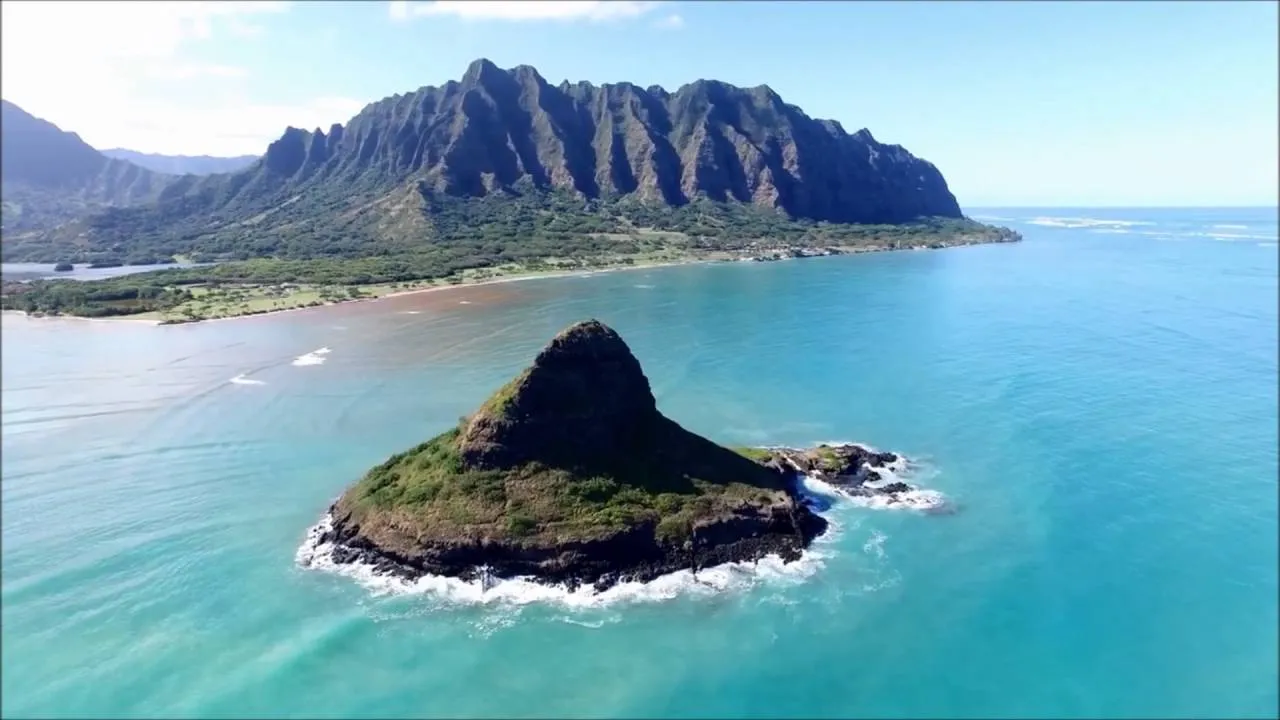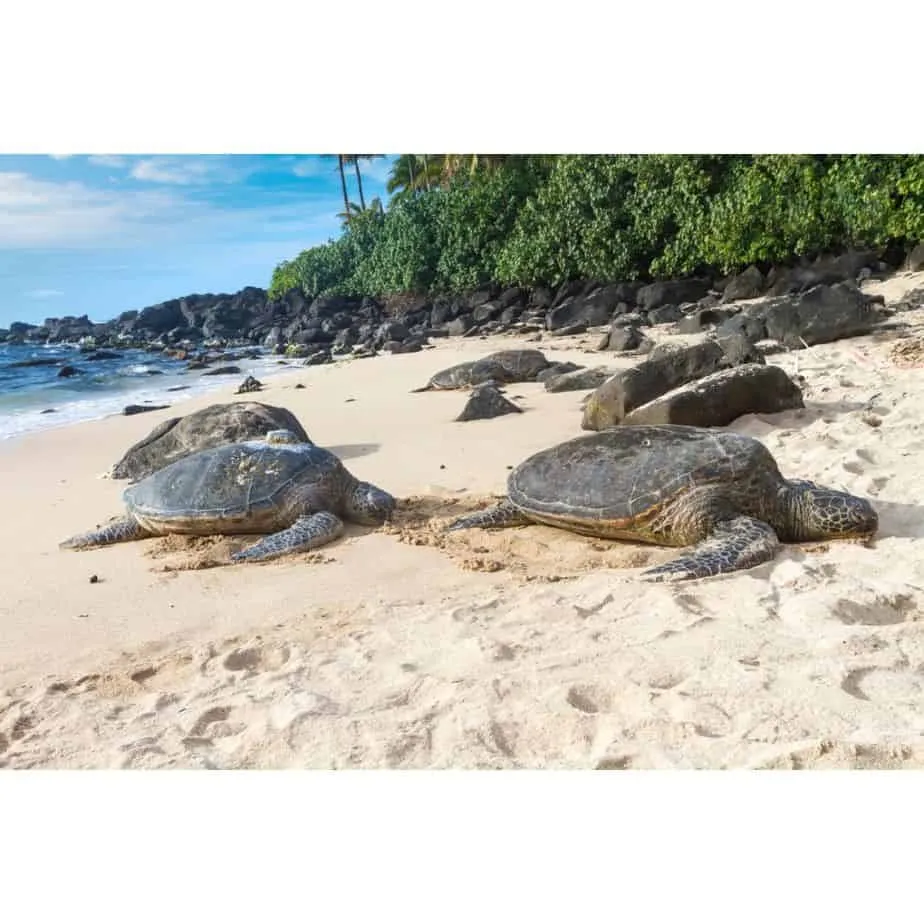Hawaii, the beautiful archipelago in the Pacific Ocean, is not only famous for its long white sandy beaches and blue ocean waves but also an ideal destination for those who love eco-tourism experiences. In particular, the small islands of Hawaii hold countless interesting things, promising visitors unforgettable memories of a true green paradise. Let’s explore the wonderful things that eco-tourism on the small islands of Hawaii brings!
Hawaii is not just a luxury resort destination but also a place to immerse yourself in nature, experience sustainable tourism activities, and contribute to preserving the unspoiled beauty of the islands. From exploring the rich marine ecosystem to trekking in the rainforest, Hawaii has everything to meet the needs of nature-loving travelers.
Explore Unique Biodiversity
The small islands of Hawaii boast an extremely diverse and unique ecosystem, with many rare species of flora and fauna not found anywhere else in the world.
Snorkeling and Diving to See Coral Reefs and Marine Life
One of the eco-tourism experiences not to be missed when coming to Hawaii is snorkeling to see coral reefs. The coral reefs here are home to thousands of colorful fish, sea turtles, and other bizarre marine creatures.

Marine protected areas such as Hanauma Bay (Oahu) are ideal destinations to explore the underwater world safely and sustainably. Visitors are encouraged to use environmentally friendly sunscreen to protect coral reefs from harmful chemicals.
Trekking in Tropical Rainforests
Hawaii also has lush tropical forests with rich flora. Trekking and hiking are great opportunities to explore hidden waterfalls, strange plants, and admire panoramic island views from above.

These forests are not only home to many native bird species but also an important part in maintaining the ecological balance of the island.
Experience Indigenous Culture Connected to Nature
Eco-tourism in Hawaii is not only about exploring nature but also an opportunity to learn about the deep indigenous culture, closely linked to the natural environment.
Visiting Organic Farms
Hawaii has many organic farms where visitors can learn about sustainable farming practices and enjoy fresh local products. These farms not only provide food for local people but also contribute to the conservation of land and water resources.
Learning About Traditional Handicrafts
Traditional Hawaiian handicrafts often use natural materials such as wood, leaves, and seashells. Visitors can participate in handicraft classes to better understand the cultural values and environmental awareness of the indigenous people.
Suggested Eco-Tourism Itinerary in Hawaii
To help you have a memorable eco-tourism experience in Hawaii, here is a detailed itinerary suggestion:
Day 1: Arrive in Honolulu and Explore Waikiki
- Arrive at Honolulu International Airport (HNL), go through immigration and check into your hotel.
- Stroll along Waikiki Beach, watch the sunset, and enjoy local cuisine.
- Learn about Hawaiian history and culture at Iolani Palace, the only royal palace in the United States.
Day 2: Discover Oahu Island
- Visit Pearl Harbor, an important historical site from World War II.
- Explore the North Shore, an area famous for its big waves and international surfing competitions.
- Visit the Dole Plantation and enjoy delicious pineapple ice cream.
Day 3: Island Hopping to Chinaman’s Hat and Polynesian Cultural Center
- Take a boat trip to Chinaman’s Hat Island, a unique cone-shaped islet.
- Enjoy Malasada, a Hawaiian specialty pastry.
- Visit the Polynesian Cultural Center, which vividly recreates the cultures of the Pacific Islands.
Day 4: Snorkeling at Hanauma Bay
- Spend the whole day snorkeling to see coral reefs and marine life at Hanauma Bay.
- Learn about marine conservation measures and the importance of protecting coral reefs.
Day 5: Hiking at Diamond Head and Sunset Viewing
- Hike to the summit of Diamond Head, a dormant volcanic crater, to admire panoramic views of Honolulu and Waikiki.
- Learn about the geological history and unique ecosystem of Diamond Head.
- Enjoy the sunset on Sunset Beach, one of the most beautiful sunset viewing spots in Hawaii.
Day 6: Free Exploration and Shopping
- Enjoy a free day to explore Hawaii in your own way.
- Participate in activities such as surfing, kayaking, or hiking.
- Shop for souvenirs and local products at markets and craft stores.
Day 7: Farewell Hawaii
- Enjoy a final breakfast in Hawaii.
- Check out of your hotel and go to the airport to return home, carrying beautiful memories of a memorable eco-tourism trip.
Important Notes for Eco-Tourism Trips
To have a complete eco-tourism experience in Hawaii, you need to pay attention to the following:
- Choose appropriate clothing: Bring comfortable, breathable clothes, hiking shoes, and swimwear.
- Protect your skin: Use high SPF sunscreen, wear a hat and sunglasses to protect your skin from the intense sun.
- Stay hydrated: The weather in Hawaii is quite hot and humid, you should drink enough water to avoid dehydration.
- Respect nature: Do not litter, do not harm flora and fauna, and comply with the regulations of protected areas.
- Learn about local culture: Learn about the customs and history of the Hawaiian people to gain a deeper understanding of this land.
Conclusion
Eco-tourism experiences on the small islands of Hawaii are a great opportunity to explore unspoiled natural beauty, learn about unique indigenous culture, and contribute to environmental conservation. With the above suggestions and notes, hopefully, you will have a memorable and meaningful trip in the green paradise of Hawaii. Come and feel the magic of nature, the warmth of people, and the richness of culture here!